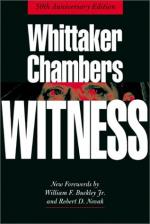|
This section contains 421 words (approx. 2 pages at 400 words per page) |

|
Plato thought science and poetry were antithetical. Aristotle, in his Poetics, challenged Plato’s opinion. Aristotle explained that science and art more generally are complementary (rather than opposing) ways of understanding the world. Science studies the tangible, empirical world, and poetry expresses human perception and feeling about the world. Both seek truth. Dante in the thirteenth century argued that science is truth achieved through reason and poetry is truth achieved through imagination.
During the Renaissance, thinkers outlined a broader context for the arts, sciences, and philosophy. These disciplines were understood as interrelated and virtually inseparable. Artists used what they learned from scientific experimentation to design paintings that correctly conveyed a sense of depth and proportion. The human body was depicted in drawings, paintings, and frescos that proved the artist’s efforts to convey correct anatomy. Indeed, one of Da Vinci’s paintings...
|
This section contains 421 words (approx. 2 pages at 400 words per page) |

|




